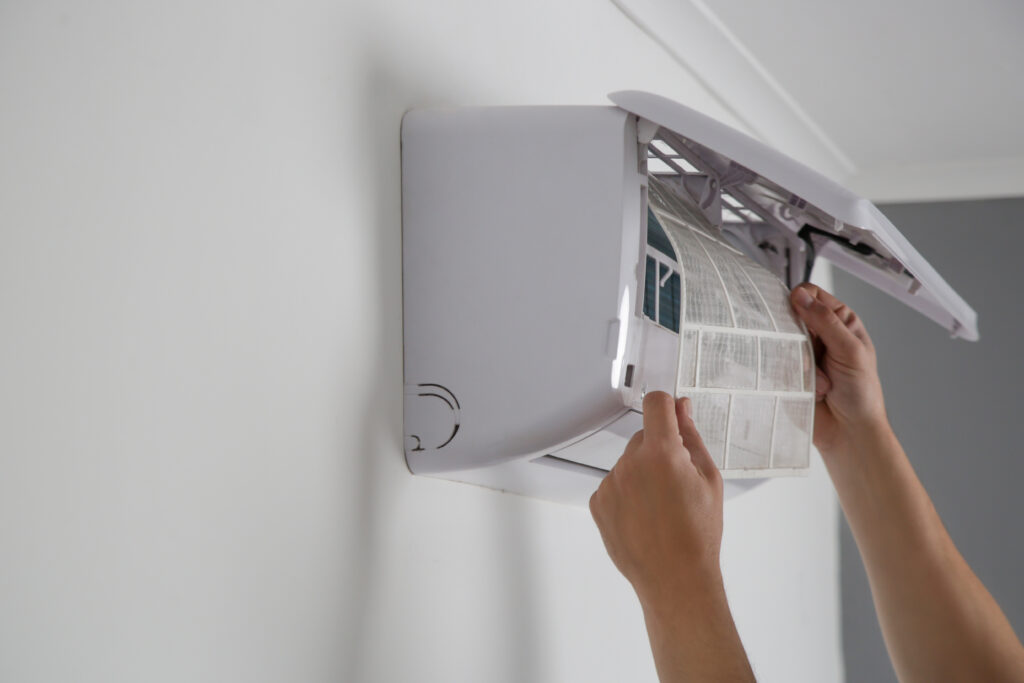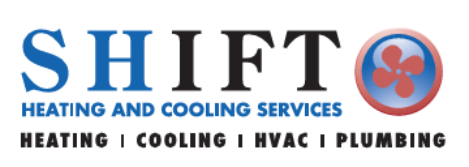
In the quest for a comfortable and healthy indoor environment, the humble air filter plays a pivotal role. As the gatekeeper of your home’s air quality, the right filter can make all the difference between stuffy, polluted air and a refreshing, allergen-free atmosphere. With so many filter types available on the market, it’s essential to understand the nuances of each option to ensure you make an informed decision for your HVAC system.
At Shift Air, we’re passionate about empowering homeowners to breathe easy. In this article, we’ll delve into the world of air conditioning filters, exploring the various types, their unique features, and the factors to consider when selecting the perfect fit for your home. Whether you’re a seasoned HVAC enthusiast or a first-time homeowner, this article will equip you with the knowledge to navigate the diverse landscape of air filtration and make an informed choice that enhances your indoor air quality and the longevity of your HVAC system.
The Importance of Air Filters in Your HVAC System
The air filter in your HVAC system plays a crucial role in maintaining the overall health and efficiency of your home’s climate control. Its primary function is to remove harmful particles, allergens, and contaminants from the air as it circulates through the system. By trapping these pollutants, air filters help to:
Improve Indoor Air Quality
A high-quality air filter can effectively capture a wide range of airborne particles, including dust, pollen, pet dander, and even microscopic bacteria and viruses. This improved air filtration can significantly enhance the indoor air quality, creating a healthier environment for you and your family, especially for those with respiratory conditions or allergies.
Protect HVAC Components
As air passes through the HVAC system, it carries with it a variety of debris and particulates. Without a proper air filter, these contaminants can accumulate on the system’s coils, fans, and other critical components, leading to reduced efficiency, increased energy consumption, and even premature system failure. A well-maintained air filter helps to keep these components clean and functioning at their best.
Extend HVAC Lifespan
By shielding your HVAC system from the buildup of dirt, dust, and other airborne pollutants, a high-performing air filter can significantly extend the lifespan of your unit. This translates to fewer costly repairs and a longer overall service life, ultimately saving you money in the long run.
Different types of Air Conditioning Filters
Let’s explore the various types of air filters available for your home’s HVAC system:
1. Fiberglass or Spun Glass Filters
These affordable, flat-panel filters are one of the most common types found in residential and commercial HVAC systems. Consisting of strands of glass or fiberglass, they are effective at trapping larger particles like dust, lint, and pollen. However, their low MERV rating (typically 4-5) means they are less efficient at capturing smaller allergens and contaminants.
Pros:
- Inexpensive
- Effective at capturing larger particles
- Readily available
Cons:
- Low MERV rating, limited ability to filter smaller pollutants
- Can easily become clogged, reducing airflow and system efficiency
2. Pleated Filters
Pleated air filters are designed with a larger surface area, achieved by folding the filter material into a series of pleats. This increased surface area allows them to capture a wider range of particle sizes, including smaller allergens and pollutants. Pleated filters typically have a MERV rating between 5 and 13, making them a more effective choice than fiberglass filters.
Pros:
- Improved filtration performance compared to fiberglass filters
- Available in disposable and reusable options
- Longer lifespan than flat-panel filters
Cons:
- Can be more expensive than fiberglass filters
- Increased pleats may restrict airflow, potentially affecting HVAC system efficiency
3. HEPA (High-Efficiency Particulate Air) Filters
HEPA filters are widely regarded as the gold standard in air filtration, capable of removing an impressive 99.97% of airborne particles as small as 0.3 microns. This includes fine dust, pollen, mold spores, and even bacteria and viruses. With a MERV rating of 17-20, HEPA filters offer unparalleled air purification performance.
Pros:
- Exceptional filtration of even the smallest particles
- Ideal for those with severe allergies or respiratory conditions
- Long-lasting, only needing replacement every few years
Cons:
- Significantly more expensive than other filter types
- May restrict airflow, potentially reducing HVAC system efficiency
4. Electrostatic Filters
Electrostatic air filters use a combination of cotton and paper fibers to create a static charge that attracts and traps airborne particles. This unique design allows them to capture a wide range of contaminants, including dust, pollen, and pet dander, without significantly impacting airflow. Electrostatic filters are available in both disposable and washable options.
Pros:
- Effective at capturing a variety of particle sizes
- Reusable and washable options available, reducing long-term costs
- Minimal impact on HVAC system airflow
Cons:
- May struggle to filter out larger particles like dust and mold spores
- Require regular cleaning and maintenance to maintain effectiveness
5. UV (Ultraviolet) Filters
UV filters use short-wave ultraviolet light to kill bacteria, viruses, and other microorganisms as air passes through the HVAC system. While they are highly effective at disinfecting the air, UV filters do not physically remove larger particles like dust or pollen. As a result, they are often used in conjunction with other filter types for a more comprehensive air purification solution.
Pros:
- Effectively eliminates harmful microorganisms
- Helps prevent the growth of mold and mildew within the HVAC system
Cons:
- Ineffective at removing larger airborne particles
- Relatively high cost compared to other filter types
- Potential to generate ozone, which can be harmful to health
6. Washable Filters
Washable air filters, also known as reusable filters, are designed to be cleaned and reused rather than replaced. These filters are typically made of materials like cotton or polyester and can be washed with water or vacuumed to remove accumulated dirt and debris. Washable filters can be a cost-effective and environmentally friendly option, but they require regular maintenance to maintain their effectiveness.
Pros:
- Cost-effective in the long run, as they can be reused
- Environmentally friendly, reducing waste
- Capture a range of particle sizes depending on the filter material
Cons:
- Require regular cleaning and maintenance to remain effective
- May not be as efficient as disposable high-MERV filters
- Can harbor mold and bacteria if not properly dried before reinstallation
7. Media Filters
Media filters are characterized by their unique design, featuring a pleated, paper-like material folded within a metal cabinet. This construction allows for a significantly larger surface area compared to traditional flat-panel filters, resulting in enhanced filtration performance and a longer lifespan. Media filters typically have a MERV rating between 8 and 16, making them a versatile choice for many residential and commercial HVAC systems.
Pros:
- Highly effective at capturing a wide range of particle sizes
- Longer lifespan, often lasting up to 2 years
- Minimal impact on HVAC system airflow
Cons:
- Require professional installation, not a DIY project
- May not be suitable for all HVAC systems due to size constraints
- Do not effectively filter out odors or gaseous pollutants
Factors to Consider When Choosing an Air Filter
With a better understanding of the various air filter types, it’s time to consider the key factors that will help you select the most suitable option for your home:
Indoor Air Quality Needs
If you or your family members suffer from allergies, asthma, or other respiratory conditions, you’ll want to prioritize filters with higher MERV ratings (9-16) that can effectively capture smaller particles like pollen, pet dander, and even bacteria. Conversely, if your primary concern is maintaining a clean HVAC system, a lower-MERV filter (4-8) may be sufficient.
HVAC System Compatibility
It’s crucial to ensure the air filter you choose is compatible with your HVAC system. Factors like the system’s airflow capacity and the available space for filter installation will determine the appropriate size and thickness of the filter. Consulting with a professional HVAC technician can help you identify the optimal filter for your specific system.
Maintenance and Replacement Needs
Consider the filter’s lifespan and how often it will need to be replaced. Disposable filters are generally more convenient, but reusable or washable filters can be more cost-effective in the long run. Additionally, evaluate the ease of filter maintenance, as regular cleaning or replacement is essential for maintaining optimal air quality and HVAC system performance.
Energy Efficiency
High-MERV filters with increased particle-capturing capabilities may also create more airflow resistance, leading to higher energy consumption and reduced HVAC system efficiency. When selecting a filter, balance the desired level of filtration with the potential impact on your energy bills and system performance.
Budget
Air filters can vary significantly in price, from the affordable fiberglass options to the more premium HEPA and media filters. Determine your budget and weigh the long-term cost savings against the initial investment, as higher-quality filters may pay off in the form of reduced HVAC maintenance and energy costs.
The Shift Air Advantage: Tailored HVAC Solutions for Your Home
At Shift Air, we understand that every home is unique, and your air filtration needs may differ from your neighbor’s. That’s why we take a personalized approach to helping our clients select the right air filters for their HVAC systems.
Our team of experienced HVAC professionals will work closely with you to assess your indoor air quality requirements, evaluate the compatibility of your HVAC system, and recommend the most suitable air filter solution. Whether you’re looking to improve your home’s air quality, extend the lifespan of your HVAC equipment, or strike the perfect balance between filtration and energy efficiency, we’ve got you covered.
As a trusted HVAC company serving the Calgary area, Shift Air is committed to providing top-notch customer service and delivering lasting solutions that enhance your indoor comfort and well-being. Contact us today to schedule a consultation and let us help you breathe easier in your home.
Conclusion
Navigating the diverse world of air conditioning filters can be a daunting task, but with the right knowledge and guidance, you can make an informed decision that benefits your home and your family’s health. By understanding the various filter types and key factors to consider, you can select the perfect air filtration solution for your HVAC system.
With the help of Shift Air’s expert team, you can ensure your indoor air quality is at its best, allowing you to live, work, and thrive in a healthier, more comfortable environment. Take the first step towards cleaner, fresher air today and contact us to explore your air filter options.
